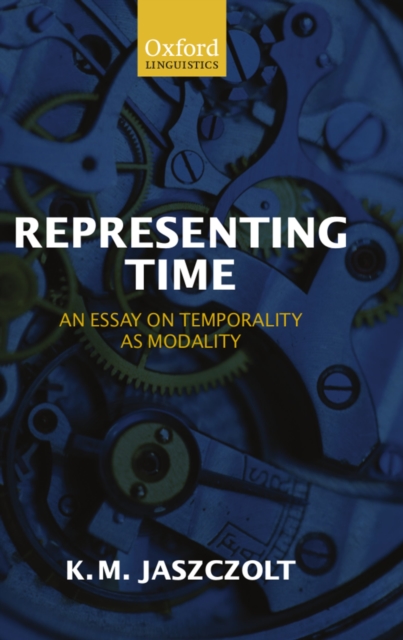
Representing Time : An Essay on Temporality as Modality PDF
by Kasia M. Jaszczolt
Description
Thinking and speaking about time is ridden with puzzles and paradoxes.
How do human beings conceptualize time? Why, for example, does the availability of tense vary in different languages?
How do the lines of information from tense, aspect, temporal adverbs, and context interact in the mind?
Does time describe events? If real time does not flow, where do the concepts of the past, present and future come from?
Are they basic concepts or are they composed out of moreprimitive constituents? And, finally, what is the semantics of expressions with temporal reference?
This book offers a new approach to the representation of meaning of temporally-located utterances and discourses.
Temporality, the author suggests, should be taken to mean degrees of certainty,understood in turn as degrees of acceptability concerning the eventuality referred to in the speaker's utterance.
She presents theoretical arguments and empirical evidence from Indo-European and non-Indo-European languages to show that speakers represent the past, present, and future as degrees of epistemic modality.
She argues that temporality can be subsumed under the general label of acceptability or attitude and, rather like the semantic category of evidentiality, founded on the strength ofevidence.
In the approach she develops, modality provides basic conceptual building blocks for the concept of time and at the same time semantic building blocks for representing temporal expressions in her framework of Default Semantics.
Dr Jaszczolt sets the results of her research in the contextof linguistic and philosophical work in semantics and pragmatics.
Information
-
Download - Immediately Available
- Format:PDF
- Publisher:OUP Oxford
- Publication Date:26/02/2009
- Category:
- ISBN:9780191550362
Information
-
Download - Immediately Available
- Format:PDF
- Publisher:OUP Oxford
- Publication Date:26/02/2009
- Category:
- ISBN:9780191550362






